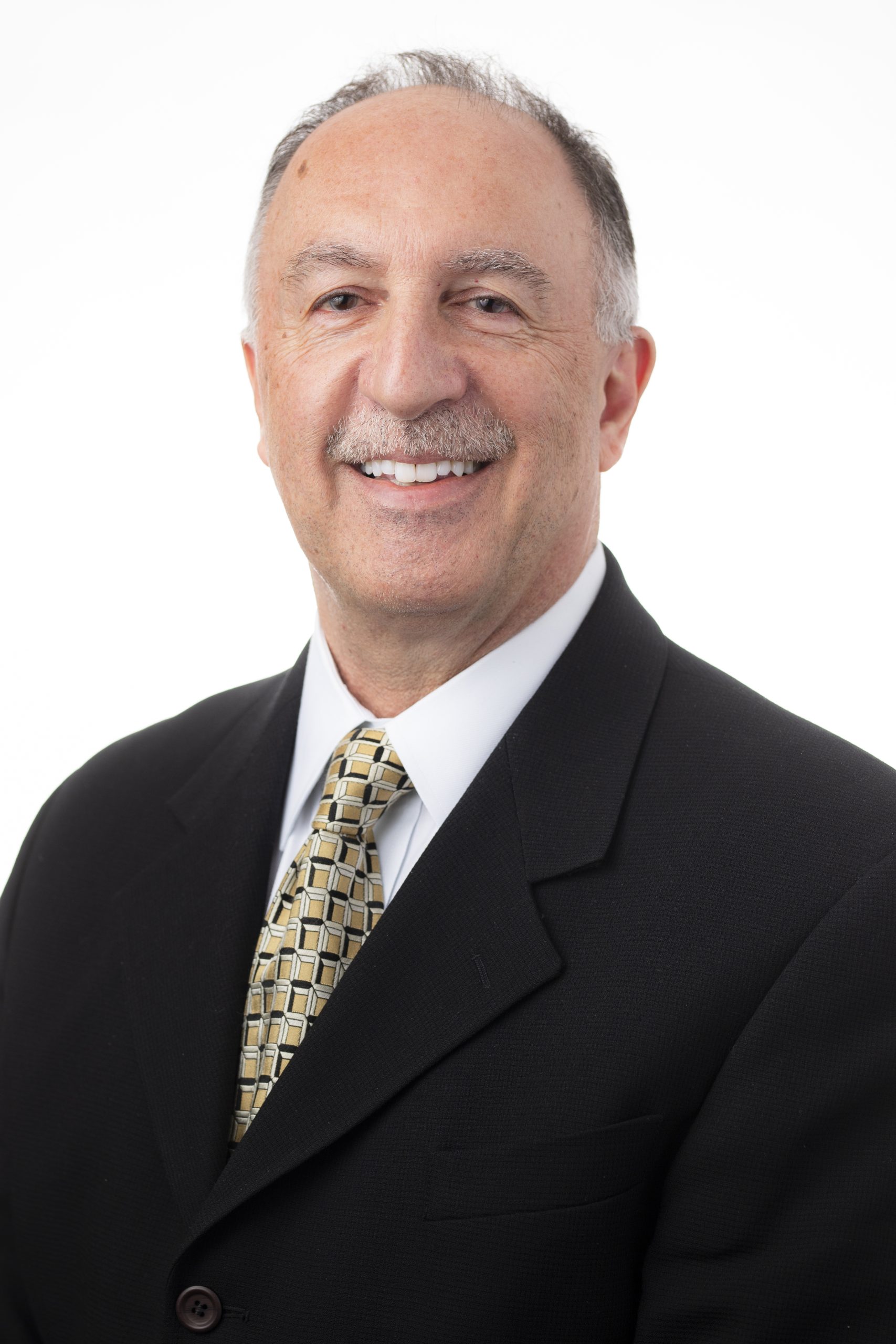Our Committees
There are seven committees that each health regulatory college is mandated to have by the Regulated Health Professions Act, 1991.
The statutory committees are:
- Executive
- Discipline
- Fitness to Practise (FTP)
- Inquiries, Complaints and Reports (ICRC)
- Patient Relations (PRC)
- Quality Assurance (QA)
- Registration
The College’s non-statutory Committees are:
- Audit
- Elections
- Registrar’s Performance and Compensation Committee
- Registration Examination
- Sedation
- Standing Drug
- Standards and Guidelines
- Strategic Planning
- Technical
Committee Chairs

Peter Stavropoulos, Podiatrist
Executive Committee
Inquiries, Complaints & Reports Committee
Patient Relations Committee
Standing Drug Committee

Cesar Mendez, Chiropodist
Discipline Committee

Brooke Mitchell, Chiropodist
Fitness to Practice Committee
Standards and Guidelines Committee

Millicent Vorkapich-Hill, Podiatrist
Quality Assurance Committee
Sedation Committee
Strategic Planning Committee

Matthew Doyle, Chiropodist
Registration Committee

Chad Bezaire, Chiropodist
Audit Committee

Stephanie Shlemkevich, Chiropodist
Registration Examination Committee

Edward Chung, Podiatrist
Technical Committee

Allan Katz, Public Appointee
Elections Committee
Registrar’s Performance and Compensation Committee
Mandate of Statutory and Non-statutory Committees of the College
Statutory Committees
Inquiries Complaints and Reports Committee
The Inquiries Complaints and Reports Committee (“ICRC”) is a statutory committee under the Regulated Health Professions Act, 1991. The ICRC investigates complaints and reports to address concerns about the conduct and practice of Ontario chiropodists and podiatrists. It also conducts inquiries into whether a member has a mental or physical condition or disorder that impacts the member’s capacity to practise safely.
After a complaint or report is investigated, the ICRC decides what action to take. The ICRC may do any one or more of the following:
- refer allegations of the member’s professional misconduct or incompetence to the Discipline Committee;
- refer the member to a panel of the ICRC for a health inquiry;
- require the member to attend before a panel of the ICRC to be cautioned;
- require the member to participate in a specified continuing education or remedial program (educational program); or
- take other action including providing advice to the member, accepting an undertaking, accepting a permanent resignation or taking no action.
- if the ICRC is satisfied that a complaint is an abuse of process, it is required to take no action.
The ICRC reviews three types of issues:
Complaints: The complaint process is a formal process set out in legislation. Complaints may be submitted by any member of the public.
Registrar’s Report Investigations: Registrar’s Investigations commence because of concerns that are not submitted as a formal complaint. Reports come from employers, facility operators, members, and others. Based on the information, if the Registrar determines that there are reasonable and probable grounds to believe that a member has committed professional misconduct, or the member may be incompetent, an investigation is initiated.
Health Inquiries: The ICRC conducts inquiries into whether a member has a mental or physical condition or disorder that impacts the member’s capacity to practise safely. The ICRC makes inquiries and may require the member to undergo medical examinations and suspend the member’s certificate of registration if he or she does not attend or comply. The ICRC, after reviewing the results of its inquiries, may refer the matter to the Fitness to Practise Committee.
We are looking for chiropodists or podiatrists who
- understand standards and how a member’s practice and behaviour impact patient safety
- can make decisions
- can apply legal criteria (with legal counsel support) when making decisions
- have experience protecting patients’ rights
- act in their patients’ best interests
- are committed to safety for patients and communities
- have prior board or committee experience (for example, through professional experience or volunteerism)
To work well on a College committee, you must be someone who:
- seeks understanding and communicates clearly
- is self-aware and can manage emotions when faced with conflict
- is helpful to others and able to build relationships
- has unquestioned integrity
- can develop and apply learning
- has professional judgement and is a critical thinker
- is comfortable using information technology and web-based applications (committee work is paperless)
You will need to:
- comply with the Code of Conduct for Members of Council and its Committees and the Conduct By-Law for Council and committee members
- commit up to three days each month during a regular 9 a.m. to 5 p.m. workday
- participate in virtual meetings in an area that ensures confidentiality and no interruptions
- carefully read large amounts of information about complaints and reports
- contribute to the discussion and decision-making at meetings
- participate in orientation and ongoing education
About the committee’s work
The committee reviews complaints and reports about chiropodists and podiatrists and uses legal criteria to determine how to respond. This may include:
- investigating a complaint or report
- approving an alternate dispute resolution agreed to by the person who complained, the chiropodist or podiatrist and the College
- requiring a chiropodist or podiatrist to participate in remediation, such as an oral caution or continuing education
- requiring a chiropodist or podiatrist to undergo a health assessment to determine if they have a health condition that impacts their ability to practice safely
- imposing terms, conditions or limitations on a chiropodist or podiatrist’s certificate of registration
- suspending a chiropodist or podiatrist’s certificate of registration
- referring specified concerns to the appropriate adjudicative committee (Discipline or Fitness to Practise)
The College
- provides regulatory expertise and advice
- delivers orientation, education and ongoing support
- schedules all meetings in advance
- pays an honorarium and covers expenses
Responsible staff member: Meghan Clarke
Discipline Committee
The Discipline Committee is a statutory committee under the Regulated Health Professions Act, 1991. The Discipline Committee holds hearings into allegations of professional misconduct or incompetence about a member, which have been referred to the Committee by the Inquiries, Complaints and Reports Committee. If a panel of the Discipline Committee finds a member has committed an act of professional misconduct or is incompetent, it may make an order doing any one or more of the following:
- Directing the Registrar to revoke or suspend a member’s certificate of registration or to impose terms, conditions and limitations on the member’s certificate of registration;
- Requiring the member to appear before the Committee to be reprimanded;
- Requiring the member to pay a fine not exceeding $35,000.00 to the Minister of Finance
- Requiring a member to pay all or a portion of the College’s costs related to the matter brought before the Discipline Committee.
We are looking for chiropodists or podiatrists who
- understand standards and how a member’s practice and behaviour impact patient safety
- can make decisions
- can apply legal criteria (with legal counsel support) when making decisions
- have experience protecting patients’ rights
- act in their patients’ best interests
- are committed to safety for patients and communities
- have prior board or committee experience (for example, through professional experience or volunteerism)
- have excellent, clear writing skills
To work well on a College committee, you must be someone who
- seeks understanding and communicates clearly
- is self-aware and can manage emotions when faced with conflict
- is helpful to others and able to build relationships
- has unquestioned integrity
- can develop and apply learning
- has professional judgement and is a critical thinker
- is comfortable using information technology and web-based applications (committee work is paperless)
You will need to
- comply with the Code of Conduct for Members of Council and its Committees and the Conduct By-Law for Council and committee members
- commit up to four days each month during a regular 9 a.m. to 5 p.m. workday, including sometimes being available for consecutive hearing dates
- attend in-person hearings
- participate in virtual hearings in an area that ensures confidentiality and no interruptions
- carefully read large amounts of information about a member’s conduct
- contribute to the discussion and decision-making at hearings
- participate in orientation and ongoing education
About the committee’s work
The committee holds public hearings, at which evidence is presented. From the evidence, the Committee decides whether a chiropodist or podiatrist has committed an act, or acts, of professional misconduct.
If so, it determines the appropriate action, including:
- reprimanding a chiropodist or podiatrist
- imposing terms, conditions and limitations on a chiropodist or podiatrist’s practice, or suspending a chiropodist or podiatrist
- requiring a chiropodist or podiatrist to pay a fine
- revoking a chiropodist or podiatrist’s registration
Following a hearing, the Committee writes its decision and reasons with the support of legal counsel.
Members of the committee may be asked to take on additional roles, such as pre-hearing Chair, panel Chair or decision writer. These roles involve additional time commitments.
The College
- provides regulatory expertise and advice
- delivers orientation, education and ongoing support
- provides legal support to the Committee
- schedules all meetings in advance
- pays an honorarium and covers expenses
Responsible staff member: Meghan Clarke
Fitness to Practise Committee
The Fitness to Practise Committee is a statutory committee under the Regulated Health Professions Act, 1991. The Committee holds hearings to assess whether a member is incapacitated, after the matter has been referred by the Inquires, Complaints and Reports Committee. If the FTP Committee finds that a member is incapacitated, it must make an order directing the Registrar to do any one or more of the following:
- Revoke the member’s certificate of registration.
- Suspend the member’s certificate of registration.
- Impose terms, conditions and limitations on the member’s certificate of registration.
Time Commitment: 1-2 days per year
The College
- provides regulatory expertise and advice
- delivers orientation, education and ongoing support
- provides legal support to the Committee
- schedules all meetings in advance
- pays an honorarium and covers expenses
Responsible staff member: Meghan Clarke
Patient Relations Committee
This Committee reviews and oversees the Patient Relations Program and support’s the College’s commitment to address concerns about a members’ conduct. The Regulated Health Professions Act, 1991 outlines two specific roles for the PRC:
- advise Council with respect to the patient relations program (PRP), which must include measures for preventing and dealing with patient sexual abuse;
- administer funding for therapy and counselling for patients who are named in a sexual abuse complaint or report.
Time Commitment: 1-2 days per year
The College
- provides regulatory expertise and advice
- delivers orientation, education and ongoing support
- provides legal support to the Committee
- schedules all meetings in advance
- pays an honorarium and covers expenses
Responsible staff member: Meghan Clarke
Quality Assurance Committee
The primary objective of the Quality Assurance Program is to provide members with the opportunity to enhance their knowledge base and clinical skills and encourage excellence in the delivery of care to the public.
The QA Committee ensures that members are participating in the QA CE Program. The Committee is responsible for reviewing members’ CE Log submissions and Practice Assessments. Members of this Committee are also responsible for reviewing the documentation and policies that pertain to the CE activities.
Time commitment: The time commitment will vary as there are some stretches of minimal activity, and other periods of greater time commitment, especially during submission reviews. With the onset of the online portal for submissions, the review process is expected to be easier in the future.
Non-Committee Opportunities
Practice Assessments (Practice Assessor)
Time commitment: In conducting a Practice Assessment, the Assessor usually requires about half a day to perform the physical, in clinic assessment, and approximately another half day to complete and submit the required documentation and report.
General duties
Upon completion of provided training, a Practice Assessment of a Member’s clinic is conducted using the provided checklist tools.
The Assessment is done in person at the Member’s practice location. The information must be submitted on the on-line portal for review by the QA Committee and the Member.
The College
- provides regulatory expertise and advice
- delivers orientation, education and ongoing support
- provides legal support to the Committee
- schedules all meetings in advance
- pays an honorarium and covers expenses
Responsible staff member: Nawaz Pirani
Registration Committee
The Registration Committee reviews applications from applicants who want to become members of the College but do not meet one or more of the registration requirements.
After considering the application and submissions, the Registration Committee may direct the Registrar to:
- issue a certificate of registration
- issue a certificate of registration with terms, conditions and limitations
- subject a certificate of registration if the applicant completes specified training or additional exams
- refuse to issue a certificate of registration.
Time commitment: As needed
The College
- provides regulatory expertise and advice
- delivers orientation, education and ongoing support
- provides legal support to the Committee
- schedules all meetings in advance
- pays an honorarium and covers expenses
Responsible staff member: Nawaz Pirani
Non-statutory Committees
Audit Committee
The Audit Committee’s responsibilities include, but are not limited to,
- acting in an advisory capacity to Council on the financial affairs of the College and, without limiting the generality of the foregoing, the Committee shall:
- review interim financial statements;
- review draft audit reports;
- oversee the implementation of audit recommendations;
- oversee the reserves of the College;
- assist Council in the consideration of the College’s audited financial statements, including meeting with the College’s auditors at least once before the audited annual financial statements are presented by the Committee for approval of Council; and
- report at least annually to Council on the financial affairs of the College; and
- studying and making recommendations to Council or the Executive Committee on any matter within its responsibility or any other matter referred to it by Council or the Executive Committee.
Time Commitment: Should not exceed 10 hours
The College
- provides regulatory expertise and advice
- delivers orientation, education and ongoing support
- provides legal support to the Committee
- schedules all meetings in advance
- pays an honorarium and covers expenses
Responsible staff member: Nicole Zwiers
Elections Committee
The Elections Committee is a standing committee of the College. This Committee is mandated by the College’s General By-law. The Elections Committee deals with disputes relating to the election of councillors and other matters provided in the by-laws, other disputes or issues referred to it by Council or the Executive Committee and it studies and makes recommendations to Council for improving the election process.
The College
- provides regulatory expertise and advice
- delivers orientation, education and ongoing support
- provides legal support to the Committee
- schedules all meetings in advance
- pays an honorarium and covers expenses
Responsible staff member: Nawaz Pirani
Registrar’s Performance and Compensation Committee
The Committee’s responsibilities include:
- annually conducting the Registrar’s performance review and presenting the results to Council;
- annually conducting a compensation review for the Registrar;
- with the prior approval of the Executive Committee or Council, engaging a consultant to assist in determining the appropriate compensation [including salary and benefits] for the Registrar, including the performing of a market survey; and
- presenting to Council the results of all compensation reviews conducted by the Registrar’s Performance and Compensation Review Committee, including a copy of any market survey obtained by the Committee, along with any recommendations it has in connection with changes to the Registrar’s compensation; and
- studying and making recommendations to Council on any matter within its responsibility or any other matter referred to it by Council, or the Executive Committee.
Time commitment: Meets as needed
The College
- provides regulatory expertise and advice
- delivers orientation, education and ongoing support
- provides legal support to the Committee
- schedules all meetings in advance
- pays an honorarium and covers expenses
Responsible staff member: Nicole Zwiers
Standing Drug Committee
This Committee is responsible for ensuring that the Drug Regulation, which the Committee was initially instrumental in formulating, is kept up-to-date. The Committee has finalized amendments to the drug regulation and forwarded them to the government for approval.
The College
- provides regulatory expertise and advice
- delivers orientation, education and ongoing support
- provides legal support to the Committee
- schedules all meetings in advance
- pays an honorarium and covers expenses
Responsible staff member: Nicole Zwiers
Sedation Committee
The Sedation Committee’s responsibilities include:
- such functions as provided to it under the by-laws and the Standard of Practice for the Administration of Inhaled Substances and the Use of Sedation in a Member’s Practice, including reviewing appeals of decisions of the Registrar to refuse a member’s application for an Inhalation Certificate; and studying and making recommendations to Council or the Executive Committee on any matter within its responsibility or any other matter referred to it by Council or the Executive Committee.
The College
- provides regulatory expertise and advice
- delivers orientation, education and ongoing support
- provides legal support to the Committee
- schedules all meetings in advance
- pays an honorarium and covers expenses
Responsible staff member: Nawaz Pirani
Standards and Guidelines Committee
The Standards and Guidelines committee serves as a standing committee charged in developing, reviewing and managing standards, guidelines, advisories and other documents set forth by the College of Chiropodists of Ontario. The committee is responsible in assisting Executive Committee and Council in the above tasks when requested or directed to do so or by reviews presented.
The committee will at times revisit college documents and update as required. This committee develops practice standards, guidelines, advisories and other documents for the profession in accordance with government legislations, regulation and by-laws. Documentation creation will also be based upon legal expertise and advisement from other committees such as Discipline, ICRC and fitness to practice. Reviews, updates and amendments of standards of practice will occur periodically, especially with changes in legislation.
Time Commitment
Meetings average 5-6 times per year r more depending on load. The meetings can average 2-3 hours on average to review documentation as a group. Scheduling and meeting length are dependent on member availability and timelines of projects. Project allocation to sub-committees may occur in order meet expected timelines with review of the complete committee.
We are looking for chiropodists or podiatrists who
- Understanding the Chiropody Act and RHPA
- Understanding current standards, ethics and scope of practice
- Understanding of various health care platforms, employers and health care settings as well as private practice settings
- Professional and collaborative dialogue, team player
The College
- provides regulatory expertise and advice
- delivers orientation, education and ongoing support
- provides legal support to the Committee
- schedules all meetings in advance
- pays an honorarium and covers expenses
Responsible staff member: Meghan Clarke
Strategic Planning Committee
The Strategic Planning Committee’s responsibilities include,
- identifying key strategic goals and actions that in its opinion will need to be taken by Council over the next five years and considering and making recommendations to Council on those goals and actions; and
- studying and making recommendations to Council on any matter within its responsibility or any other matter referred to it by Council or the Executive Committee.
The College
- provides regulatory expertise and advice
- delivers orientation, education and ongoing support
- provides legal support to the Committee
- schedules all meetings in advance
- pays an honorarium and covers expenses
Responsible staff member: Nicole Zwiers
Technical Committee
The Technical Committee was established by Council as an ad hoc committee. Its mandate is to support Council by responding to questions relating to the acceptability of practice modalities and emerging technologies.
The College
- provides regulatory expertise and advice
- delivers orientation, education and ongoing support
- provides legal support to the Committee
- schedules all meetings in advance
- pays an honorarium and covers expenses
Responsible staff member: Nawaz Pirani
